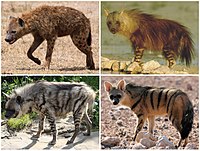
An immune challenge reduces social grooming in vampire bats
Sign Up to like & getrecommendations! Published in 2018 at "Animal Behaviour"
DOI: 10.1016/j.anbehav.2018.04.021
Abstract: Social interactions affect the transmission of many pathogens, but infections often induce sickness behaviours that alter those interactions. Vampire bats are highly mobile and social, engaging in frequent allogrooming, which is likely to facilitate pathogen… read more here.
Keywords: challenge reduces; sickness behaviour; immune challenge; behaviour ... See more keywords

Vampire Bats that Cooperate in the Lab Maintain Their Social Networks in the Wild
Sign Up to like & getrecommendations! Published in 2019 at "Current Biology"
DOI: 10.1016/j.cub.2019.10.024
Abstract: Social bonds, maintained by mutual investments of time and energy, have greatly influenced the evolution of social cognition and cooperation in many species [e.g., 1-8]. However, there are two pitfalls regarding "social bonds" as an… read more here.
Keywords: vampire bats; social structure; partner; partner fidelity ... See more keywords

Development of New Food-Sharing Relationships in Vampire Bats
Sign Up to like & getrecommendations! Published in 2020 at "Current Biology"
DOI: 10.1016/j.cub.2020.01.055
Abstract: Some nonhuman animals form adaptive long-term cooperative relationships with nonkin that seem analogous in form and function to human friendship [1-4]. However, it remains unclear how these bonds initially form, especially when they entail investments… read more here.
Keywords: vampire bats; food sharing; cost; sharing relationships ... See more keywords

Novel hemotropic mycoplasmas are widespread and genetically diverse in vampire bats
Sign Up to like & getrecommendations! Published in 2017 at "Epidemiology and Infection"
DOI: 10.1017/s095026881700231x
Abstract: SUMMARY Bats (Order: Chiroptera) have been widely studied as reservoir hosts for viruses of concern for human and animal health. However, whether bats are equally competent hosts of non-viral pathogens such as bacteria remains an… read more here.
Keywords: hemotropic mycoplasmas; novel hemotropic; vampire; hemoplasmas ... See more keywords

Food-sharing vampire bats are more nepotistic under conditions of perceived risk
Sign Up to like & getrecommendations! Published in 2017 at "Behavioral Ecology"
DOI: 10.1093/beheco/arx006
Abstract: Lay Summary When rescue behavior is more risky, rescuers should be more biased towards closer kin. We tested this idea using food-sharing vampire bats. We created a risky “rescue condition” where donors had to descend… read more here.
Keywords: risk; food sharing; sharing vampire; vampire bats ... See more keywords

Forced proximity promotes the formation of enduring cooperative relationships in vampire bats
Sign Up to like & getrecommendations! Published in 2022 at "Biology Letters"
DOI: 10.1098/rsbl.2022.0056
Abstract: Spatial assortment can be both a cause and consequence of cooperation. Proximity promotes cooperation when individuals preferentially help nearby partners, and conversely, cooperation drives proximity when individuals move towards more cooperative partners. However, these two… read more here.
Keywords: promotes formation; proximity; formation enduring; vampire bats ... See more keywords

Social effects of rabies infection in male vampire bats (Desmodus rotundus)
Sign Up to like & getrecommendations! Published in 2022 at "Biology Letters"
DOI: 10.1098/rsbl.2022.0298
Abstract: Rabies virus (RABV) transmitted by the common vampire bat (Desmodus rotundus) poses a threat to agricultural development and public health throughout the Neotropics. The ecology and evolution of rabies host-pathogen dynamics are influenced by two… read more here.
Keywords: desmodus rotundus; vampire; social effects; behavioral changes ... See more keywords

Social dominance and cooperation in female vampire bats
Sign Up to like & getrecommendations! Published in 2021 at "Royal Society Open Science"
DOI: 10.1098/rsos.210266
Abstract: When group-living animals develop individualized social relationships, they often regulate cooperation and conflict through a dominance hierarchy. Female common vampire bats have been an experimental system for studying cooperative relationships, yet surprisingly little is known… read more here.
Keywords: vampire; vampire bats; dominance; food ... See more keywords

Demographic and environmental drivers of metagenomic viral diversity in vampire bats
Sign Up to like & getrecommendations! Published in 2019 at "Molecular Ecology"
DOI: 10.1111/mec.15250
Abstract: Abstract Viruses infect all forms of life and play critical roles as agents of disease, drivers of biochemical cycles and sources of genetic diversity for their hosts. Our understanding of viral diversity derives primarily from… read more here.
Keywords: viral communities; viral diversity; diversity; demographic environmental ... See more keywords

Genetic diversity of Bartonella spp. in vampire bats from Brazil.
Sign Up to like & getrecommendations! Published in 2019 at "Transboundary and emerging diseases"
DOI: 10.1111/tbed.13290
Abstract: Recently, an increasing number of Bartonella species have been emerged to cause human diseases. Among animal reservoirs for Bartonella spp., bats stand out due to their high mobility, wide distribution, social behavior, and long-life span.… read more here.
Keywords: bartonella; bartonella spp; vampire; genetic diversity ... See more keywords

Temporal patterns of vampire bat rabies and host connectivity in Belize
Sign Up to like & getrecommendations! Published in 2020 at "Transboundary and Emerging Diseases"
DOI: 10.1111/tbed.13754
Abstract: Abstract In the Neotropics, vampire bats (Desmodus rotundus) are the main reservoir host for rabies, a highly fatal encephalitis caused by viruses in the genus Lyssavirus. Although patterns of rabies virus exposure and infection have… read more here.
Keywords: bat; bat rabies; vampire bats; vampire bat ... See more keywords